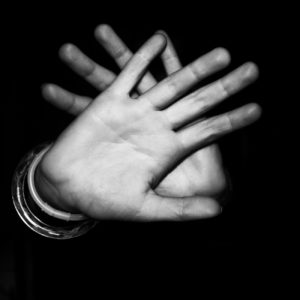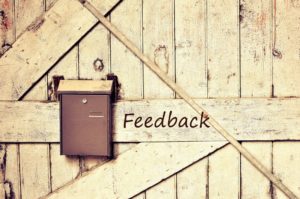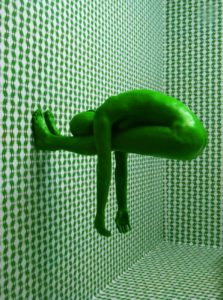 This past weekend I (silently) had the following conversation with myself at a busy, public place when I suddenly realized that I was in a terrible mood and wanted to find out why I felt that way. The sections in blue are my emotions. My responses to them are written in black.
This past weekend I (silently) had the following conversation with myself at a busy, public place when I suddenly realized that I was in a terrible mood and wanted to find out why I felt that way. The sections in blue are my emotions. My responses to them are written in black.
Everything in the entire world is wrong.
Oh, what makes you say that?
It just is.
Okay, let’s probe a little deeper. Are you feeling hungry right now?
Yes. I should have eaten a full lunch two hours ago, but it was delayed. The snack I had isn’t helping much at all.
Let’s get you some food. Do you feel better now that you’ve eaten something?
Yes. Only half of the entire world is wrong now.
Are you feeling angry?
No.
Good. Are you feeling lonely?
Not at all. I’ve spent plenty of time socializing with friends lately. Now I’m surrounded by hundreds of noisy strangers.
How do you feel about that? Are you feeling tired?
I’m not feeling tired in the sense that I need to go to sleep, but I am overwhelmed by all of the people here. It’s hard to ignore all of the background noises and intrusions on my personal space that come from having more folks in one space than that area was necessarily designed to hold.
Now that you’re no longer hungry and have gone someplace quieter, how are you feeling?
So much better.
HALT
As you’ve probably already guessed, HALT is an acronym for hungry, angry, lonely, tired. I’ve seen it being used for everything from stress management to parenting to coping strategies for people who are trying to end their addictions to drugs or alcohol.
It’s a technique that I’ve also found very useful when trying to remain mindful on days when I’m not at my best.
Sometimes the reasons why it’s difficult to remain focused in the present moment are rooted in what is happening to you physically. Not getting enough sleep or food can drastically change the way you look at the world. I know that I don’t respond well at all to missing my normal mealtime. I can be grumpy, too, after a particularly poor night of sleep.
Some emotions can make it more difficult to remain mindful as well. I know that sometimes I can have trouble exploring feelings like anger or jealousy without judging those emotions (or myself for feeling them). This is even more true when I’m feeling overwhelmed by my current mood and don’t have any idea where to begin in untangling everything I’m currently feeling.
The beautiful thing about HALT is the way it encourages you to explore one simple question at a time. Sometimes I’ll realize that my bad mood was caused by something as easy to fix as needing a snack, 20-minute nap, or even a quieter environment in general. After I’ve taken care of that basic need, I’ll go back to my normal self.
Fixing an emotion like anger or loneliness can take more time than that, but knowing exactly what it is that’s making me feel so bad is a fantastic first step in figuring out how to solve it.
The Mind Is Like a Muscle
 I think of mindfulness in much the same way I do weightlifting. The mind is like a muscle.
I think of mindfulness in much the same way I do weightlifting. The mind is like a muscle.
It takes time and effort in order to build muscle or practice being mindful. Neither of these are things you can become an expert at in a day or week.
I honestly didn’t see much difference at all in myself for quite a while when I first began lifting weights and practicing mindfulness. The changes were so gradual that I don’t think I realized they were happening at the time, although I can now look back and see subtle signs that things were improving once I began sticking to a regular routine for both of these practices.
The wonderful thing about HALT is that it doesn’t require any experience in mindfulness at all in order to be useful. It really is as simple as remembering the four basic questions and trying to find solutions to any “yes” responses you might get to them.
Will it solve every moment of distraction or frustration? Of course not, but it’s an excellent place to begin when you’re distracted or have a sense that something is wrong but can’t quite pin down what it might be. This is still an exercise I rely on quite a bit when I have the kind of day I referred to in the beginning of this post. It’s such an effective tool for getting to the heart of the matter when I don’t have the energy for more complicated tools.
What have your experiences with HALT been like? Have you ever used it as a mindfulness exercise?

 What’s the first thing that comes to mind when you think about summer?
What’s the first thing that comes to mind when you think about summer? Often, I was completely wrong about how a particular situation would turn out. A mild headache would fade away instead of becoming more painful. One particular itchy day didn’t necessarily mean that the entire week would pass by under a haze of sneezing fits.
Often, I was completely wrong about how a particular situation would turn out. A mild headache would fade away instead of becoming more painful. One particular itchy day didn’t necessarily mean that the entire week would pass by under a haze of sneezing fits. A few months ago, I was impatiently* awaiting the true beginning of spring. Toronto continued to receive snowstorms and cold weather long after the spring equinox had technically already occurred, and I was dreadfully tired of the short days and icy sidewalks.
A few months ago, I was impatiently* awaiting the true beginning of spring. Toronto continued to receive snowstorms and cold weather long after the spring equinox had technically already occurred, and I was dreadfully tired of the short days and icy sidewalks. Some of my friends who are also interested in mindfulness have reduced their time spent on social media because of this. Honestly, I don’t blame them. I’ve cut back certain aspects of my social media usage, too. The gap between what these sites could be and what they actually are is simply too big to ignore in certain cases.
Some of my friends who are also interested in mindfulness have reduced their time spent on social media because of this. Honestly, I don’t blame them. I’ve cut back certain aspects of my social media usage, too. The gap between what these sites could be and what they actually are is simply too big to ignore in certain cases. Sometimes saying no to certain hashtags, websites, groups, or users is the best possible response to something that is such contradictory mixture of helpful and harmful content.
Sometimes saying no to certain hashtags, websites, groups, or users is the best possible response to something that is such contradictory mixture of helpful and harmful content.

 Last month in this
Last month in this  A few weeks ago, I blogged about experimenting with
A few weeks ago, I blogged about experimenting with  Today’s post is going to be a pretty short one.
Today’s post is going to be a pretty short one. Long and Short Reviews receives more requests for reviews than it’s current pool of reviewers can read.
Long and Short Reviews receives more requests for reviews than it’s current pool of reviewers can read. One of the biggest reasons why I like Long and Short Reviews is their policy of only posting honest, snark-free reviews.
One of the biggest reasons why I like Long and Short Reviews is their policy of only posting honest, snark-free reviews. As I alluded to above, writing reviews are one of the best ways to support authors. I have a wide circle of friends who are writers, and many of them talk about the difficulties of finding potential fans out there.
As I alluded to above, writing reviews are one of the best ways to support authors. I have a wide circle of friends who are writers, and many of them talk about the difficulties of finding potential fans out there. The comment sections of the reviews and blog posts on Long and Short Reviews are a wonderful place to browse if you have some free time this week.
The comment sections of the reviews and blog posts on Long and Short Reviews are a wonderful place to browse if you have some free time this week.
 Wow, it’s been six weeks since I last
Wow, it’s been six weeks since I last  I’ve been doing guided meditation exercises since I first began meditating regularly. My very first attempts at meditation from years ago had been without any guidance at all, and they didn’t go well at all. I quickly became bored and gave up on them. Maybe it’s time to try self-guided meditation again now that I’m better at releasing stray thoughts when they appear?
I’ve been doing guided meditation exercises since I first began meditating regularly. My very first attempts at meditation from years ago had been without any guidance at all, and they didn’t go well at all. I quickly became bored and gave up on them. Maybe it’s time to try self-guided meditation again now that I’m better at releasing stray thoughts when they appear? Lately, my meditation sessions haven’t been doing much good for me at all.
Lately, my meditation sessions haven’t been doing much good for me at all.